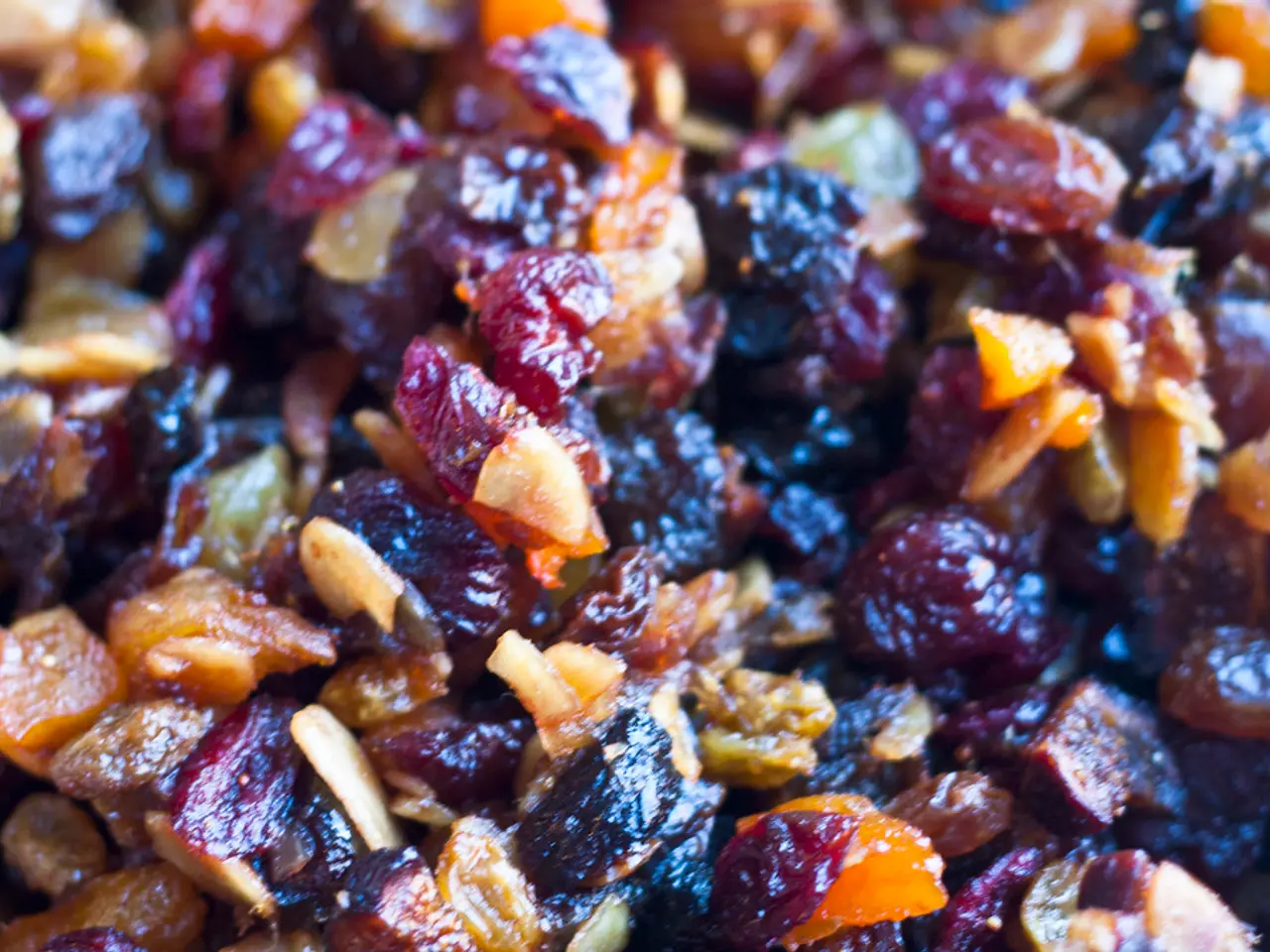Utilizing Nutrition as a Countermeasure Against Inflammation
Inflammation, the body's natural response to protect itself from harm, can sometimes lead to long-term health issues such as heart disease, diabetes, and cancer when it becomes chronic. Fortunately, by making conscious food choices, you can take control of your health and combat inflammation effectively.
One of the key strategies is to focus on an anti-inflammatory diet, which emphasises whole, nutrient-dense foods rich in antioxidants, fibre, and healthy fats. Some of the anti-inflammatory foods to consider include:
- Fatty fish, such as salmon, mackerel, and sardines, which are rich in omega-3 fatty acids and help reduce inflammation. - Berries, such as blueberries, strawberries, and raspberries, high in antioxidants like anthocyanins that combat oxidative stress and inflammation. - Leafy greens, like spinach, kale, and broccoli, containing vitamins, fibre, and compounds such as vitamin K and chlorophyll that fight inflammatory cells. - Peppers, including bell and chili peppers, packed with vitamin C, antioxidants, and quercetin, known for their anti-inflammatory effects. - Tart cherries, which have polyphenols and vitamins that lower inflammation markers. - Avocados, providing healthy monounsaturated fats and fibre that help maintain gut health and reduce inflammation. - Cruciferous vegetables, such as Brussels sprouts and red cabbage, rich in carotenoids, flavonoids, and glucosinolates with anti-inflammatory properties. - Ginger, which contains gingerol, reducing muscle pain and inflammation. - Nuts and seeds, like almonds, walnuts, chia, and flaxseeds, offering healthy fats and omega-3s. - Extra virgin olive oil, containing oleocanthal, acts similarly to anti-inflammatory medications. - Green tea, high in polyphenols that fight inflammation.
Conversely, it's essential to limit or avoid pro-inflammatory foods. These include processed and fried foods high in trans fats, refined carbohydrates like white bread and pastries, sugary beverages and snacks, red and processed meats, excessive alcohol, and foods high in omega-6 fatty acids relative to omega-3s, which can promote inflammation when unbalanced.
A balanced diet, including a variety of fruits, vegetables, whole grains, lean proteins, and healthy fats, can provide the necessary vitamins, minerals, and antioxidants to support the body's natural inflammatory response. By adopting this approach, you can potentially reduce the risk of chronic inflammation and improve overall health.
Seeking guidance from a nutrition expert can be beneficial in creating an anti-inflammatory diet plan tailored to specific needs. A nutrition coach can provide support and knowledge to make positive changes in diet and lifestyle for combating inflammation. Remember, the food you eat can significantly influence inflammation in your body.
Inflammation is the body's response to protect itself from harm. By focusing on an anti-inflammatory diet and incorporating nutrient-rich foods while avoiding pro-inflammatory foods, you can help combat inflammation and promote overall wellness.
- To combat chronic inflammation and improve health, one should focus on therapies like an anti-inflammatory diet that includes fatty fish rich in omega-3 fatty acids, berries high in antioxidants, leafy greens, peppers, tart cherries, avocados, cruciferous vegetables, ginger, nuts and seeds, and extra virgin olive oil.
- In contrast to anti-inflammatory foods, it's essential to limit or avoid pro-inflammatory foods such as processed and fried foods, refined carbohydrates, sugary beverages and snacks, red and processed meats, excessive alcohol, and foods high in omega-6 fatty acids relative to omega-3s.
- Additionally, exploring fitness-and-exercise routines, health-and-wellness practices, and therapies-and-treatments like CBD may support overall wellness and potentially reduce inflammation.




